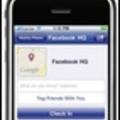There's an old saying: "you can never have too much money or friends." But that's before social networking came along. And while the adage for money still rings true, a shift maybe under way in how we define friendship. You can thank the web and social nets for that.
The American Heritiage Dictionary defines a "friend" primarily as ...
A person whom one knows, likes, and trusts.
A person whom one knows; an acquaintance.
A person with whom one is allied in a struggle or cause; a comrade.
One who supports, sympathizes with, or patronizes a group, cause, or movement: friends of the clean air movement.
Wikipedia goes a step further. It notes that in the US and elsewhere that quality of friendships has been steadily declining.
It seems, at least to me, that how we define who is/isn't a friend has changed dramatically. The Gig blog notes that this is particularly a dilemma on Facebook. Where as on other social networks, like Twitter, I let everyone in, on Facebook I have limited my network to only those who I have corresponded with or met in person. I go by the traditional definition. This unfortunately leaves many people sitting in Facebook purgatory. I don't add them to my network, yet I don't have the guts to outright Faceslam them either.
Others take a very different view. Some people I know (I won't mention them by name) like to regularly brag about how many friends they have on Facebook. I don't blame them for saying so. I blame society. In America at least, he/she who can dies with the most friends - even if they are virtual - "wins."
It's clear from all of this that our entire concept of friendships is changing. It's becoming more about quantity and less about quality.
This can be a very good thing. I am friends with people in social networks from other countries. Technology makes that possible.
On the other hand, these same technologies enable anyone to add me as a friend, even though we've never met.
It leaves me all confused about what friendship will look like in 10 years. It seems like it's declining in quality, even as technology scales it in quantity and helps our networks spread far and wide. What's your view?





Utolsó kommentek